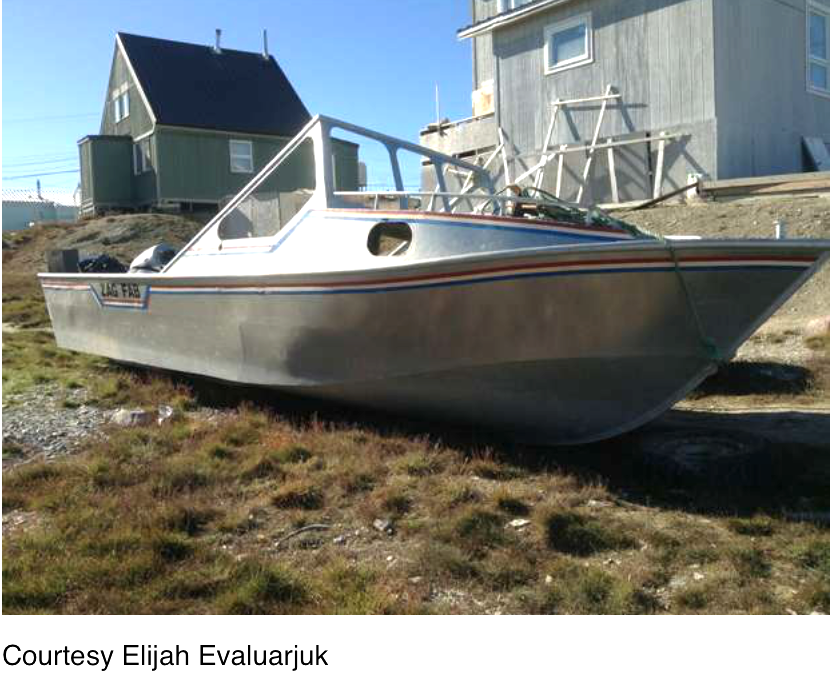Unpredictability of weather conditions
Community members of small remote communities in all regions of the Canadian Arctic have reported that the weather has become more “uncharacteristic” or less predictable and, in some cases, that storm events happen quicker today, than in previous memory. Residents involved in these studies report that this unpredictability limits current participation in traditional and subsistence activities and travel on the land. It also increases the risks of being stranded or involved in accidents out of reach of the community.
In their community case study on vulnerability to environmental change in Arctic Bay, Nunavut, community members reported that “increased storminess” was said to increase the danger of summer boating and decrease access to some hunting grounds. These impacts have associated economic implications at the household level in terms of damaged equipment and decreased access to traditional food resources.

Motor vehicle injury from snowmobiles and four-wheelers, is currently a significant cause of death and hospitalization in the NWT and the Yukon, and more common among younger Aboriginal males living in small communities. However, whether these injuries are the result of accidents in the community or on the land, and whether or how many are associated with poor or unpredictable weather conditions, is not known. There is some qualitative evidence to suggest that the incidence of accident-related injuries is increasing in smaller coastal communities that are located in already vulnerable local environments.

Copyright © All Rights Reserved

